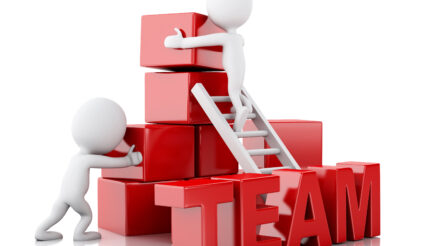There is one simple rule to apply when considering your next team building exercise. ‘Dream teams’ can’t built through information or training alone. Seminars, reading books and watching videos are all helpful strategies but as the saying goes “action speaks louder than words”.
Being able to perform tasks during training is not the same as applying them on a day to day basis. Information does not automatically change behaviours. For example, we read about the dangers of smoking but many people still engage in this behaviour.
Environment
Environment is one of the key factors in influencing your team’s success. People base their behaviour on their beliefs about themselves and their environment:
Team members should feel that they have the capability to contribute in their environment. This means giving them the right equipment and environment to be effective and comfortable is essential. It also helps if they feel safe to contribute their opinion and feedback in a supportive environment.
But how do you find this out? You simply have to ask. Ask your team if they think there are factors in their environment which could be improved to help them be more efficient, productive or happy. Perhaps they prefer listening to background music while they work or flexible hours.
Many organisations have realised the importance of employee satisfaction. Workplaces now include facilities such as childcare.
Employee Beliefs
Beliefs are the key motivators in peoples’ behaviour. However, changing your team members beliefs is not an easy task.
Recruiting the right people through personality instruments and team interviews can be one strategy, but understanding their beliefs can be important in identifying other strategies.
Changing beliefs can be a daunting challenge. Team leaders need to facilitate change by designing flexible experiences for people in organisations to learn that maybe there is a different way to look at this.
Experiential learning, such as outdoor activities and playing games aren’t just used because they are fun and help build relationships. They are use because they work. Multiple and varied experiences must be used to inspire new ways of seeing and thinking about things.
Reframing opens the mind to new beliefs and behaviour. However, information and ideas are not enough; they need to be engrained in day-to-day activity. The strategies and ideas that are identified during the training must be implemented back at the workplace.
Team building is not an exact science but a cast of finding the best strategies available to bring out the potential in your team.





